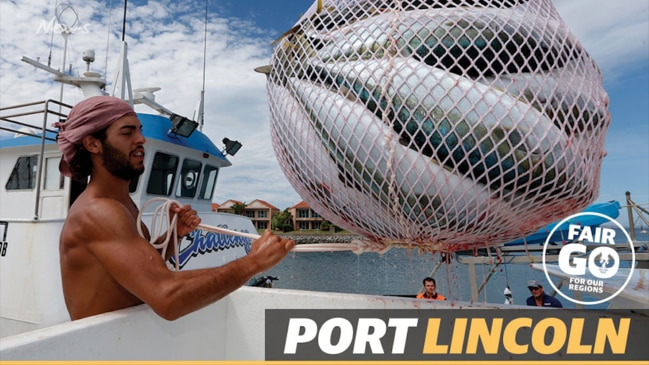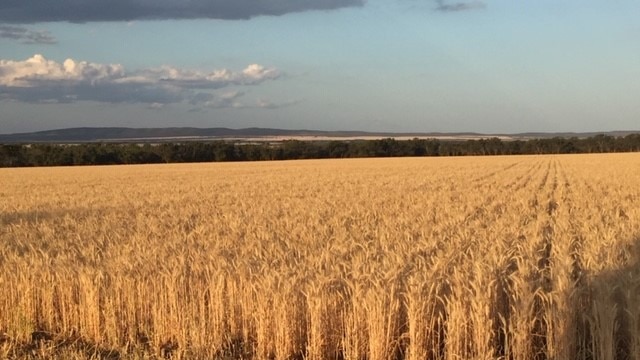Large parcel of Eyre Peninsula cropping land on the market
Four farming families on the Eyre Peninsula are offering a unique proposition to the marketplace.

SA Business
Don't miss out on the headlines from SA Business. Followed categories will be added to My News.
- Station three times the size of Adelaide on the market
- How to get the most out of your Advertiser digital subscription
One the largest parcels of cropping land to be offered on the Eyre Peninsula in years has come on the market, north of Kimba.
Unusually, four vendors have banded together to offer their properties, which cover close to 9000ha and have their own private water scheme.
It will be one of the biggest sales of EP farmland since Qatar-based company Hassad put more than 7000 hectares of Lower EP cropping land on the market in 2017.
Four Kimba farming families – the Gregorys, Fitzgeralds, Baldocks and Beinkes – are offering five contiguous properties as one lot, titled the Cunyarie Collection.
The sale is being handled by Elders Real Estate and has been marketed as an “extremely well priced agricultural enterprise”, with a price guidance of $13.2 million.
Selling agent Adam Chilcott said it was a unique situation to see farmers joining together to offer one larger lot of agricultural land.
“One of the properties Emu Rocks was put on the market in late spring, as a result, some of the potential buyers have now turned sellers,” he said.

Mr Chilcott said it was “hard to go anywhere” and find broadacre cropping land for less than $1500 a hectare, making $13.2 million for the Cunyarie Collection a realistic price guide. The sale includes houses, machinery and fertiliser storages, sheds and dams.
Cropping records across the properties indicate average production across the holdings of 1.6 tonnes/hectare for cereal crops during the last 10 years.
Mr Chilcott said there were other unique features to the sale.
MORE NEWS
Lower tonnages expected for SA vintage
Rural Women’s Award nominees named
“One of the vendors has indicated they are willing to stay on and work in a management capacity,” he said.
“A private water scheme is also in place. One of the families organised for mains water to be pumped into holding tanks, to be used for stock water, chemical top-up water or potable water, if required.”
Mr Chilcott said the location was also well-placed for cereal production, having multiple grain-export pathways, including the new T-Ports site at Lucky Bay.
